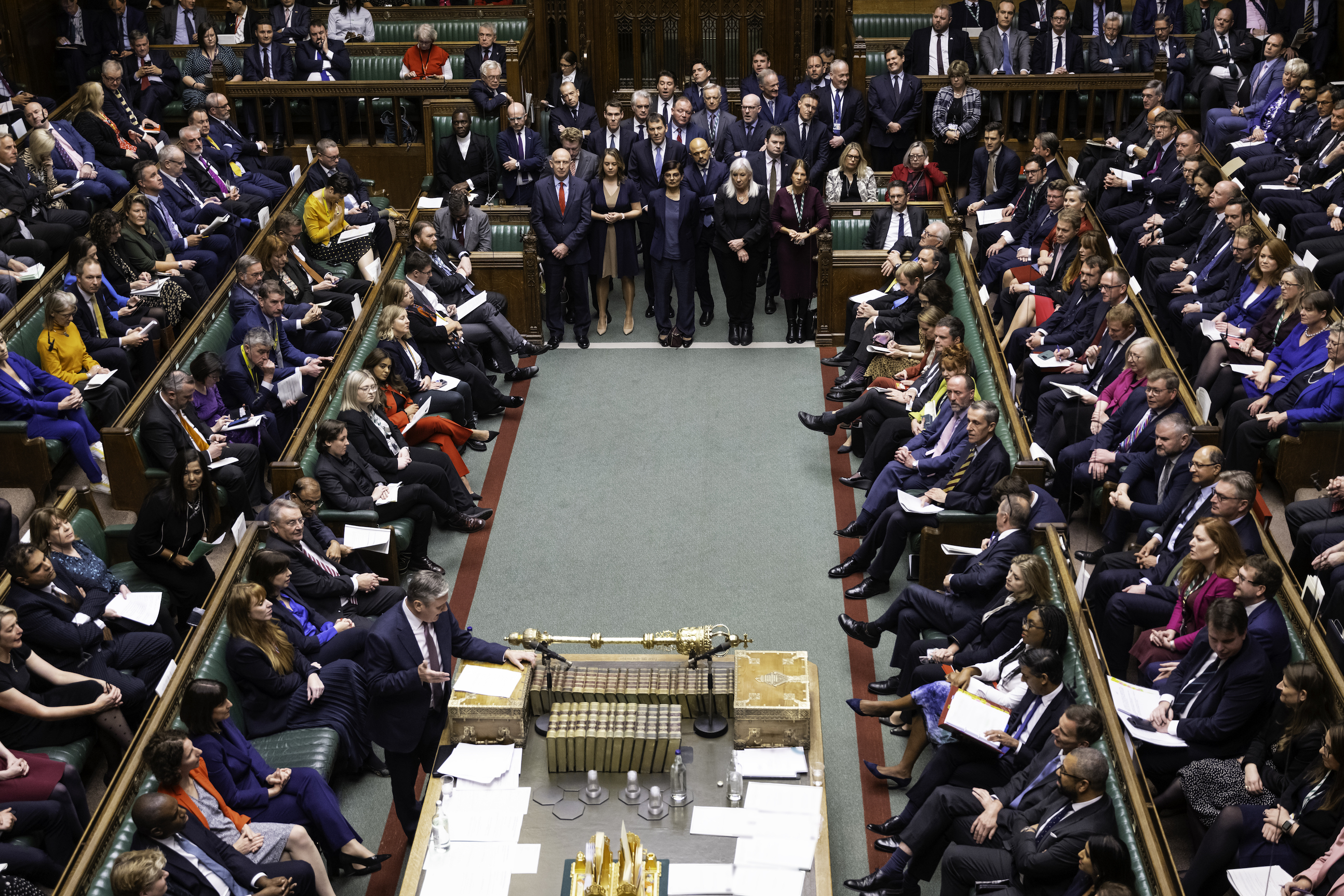The UK today is a pluralist society where people of different backgrounds and beliefs generally co-exist well together. But the crisis in the Middle East is aggravating tensions, and there has been a rise in both antisemitism and Islamophobia.
Ordinary Muslim people are being suspected of harbouring Islamic extremist views; whilst the actions of the Israeli government are blamed on Jewish communities. A worrying poll by More in Common reported in the Observer found that 9% of Britons have negative views about Jews, and 21% about Muslims.
And tensions are spilling into Westminster. The Commons Speaker disregarded Parliamentary convention in an attempt to protect the safety of Labour MPs, fearing threats of reprisal for their voting records. For MPs, the murder of two of our colleagues within five years is still a raw memory.
And when the Rochdale by-election returned the radical anti-Israel George Galloway to Parliament, Rishi Sunak responded with a speech outside Downing Street. He warned against the forces of extremism “trying to tear us apart” as protests descend into “intimidation, threats and planned acts of violence”. He called on protestors to remember our “common values of decency and respect”.


But politicians cannot avoid responsibility for the polarisation of public discourse. The anger of the Brexit debates paved the way for a language of division that is now being increasingly normalised by mainstream politicians.
For example, the former home secretary recently wrote in the Telegraph that “Islamists, extremists and antisemites” are now “in charge” of the UK, and Lee Anderson was suspended from the Conservative Party for claiming that “they” have “got control” of the mayor of London.
Meanwhile in America, Liz Truss has appeared on stage with Steve Bannon legitimising all kinds of right wing conspiracy theories that have taken hold in the US and are seeking a foothold here.
And Labour has been tackling its own divisions, indicated by Keir Starmer’s removal of support from the Labour candidate in Rochdale for antisemitic remarks.
Now, free speech is a fundamental part of our society. And so it should be. We are only as free to share our beliefs as our neighbours are free to declare theirs.
But the increasing acceptability of divisive language reflects a view that disagreement equals enmity. Those who are against us are increasingly seen as ‘other’, as less than human. It’s then a small step to believing that it’s ok to treat them without compassion or respect, to strip them of dignity.
Most of this debate does not equate to extremism – but it intensifies underlying grievances. People rightly have very strong views on the Israel/Gaza crisis. We are fortunate in this country that such frustration and anger can find an outlet in peaceful protest. If people feel heard by those in power, they feel less need to make their points through radical action. Of course there will always be extremists and trouble makers, but a healthy democratic society holds these in check.
How should Christians respond to the division, aggravation and anger that we see around us?
Firstly we should keep praying for a resolution to the Middle East conflict. James 5:16 tells us that “the prayer of a righteous person is powerful and effective”. Paul calls in 1 Timothy 2 for us to pray for those in authority “that we may live peaceful and quiet lives”. Let’s take our feelings of grief, anger and powerlessness to our Creator and intercede for peace.
Secondly, we have a responsibility ourselves to be peacemakers and to believe that we can make a difference to the tone of debate. Let’s seek to be wise and temperate in our own language, remembering that we are salt and light in our society.
Jesus gives us the sobering reminder that every word we say, or indeed type on social media or even by private messaging, will be judged: “I tell you that on the day of judgement people will have to account for every careless word they speak. For by your words you will be acquitted, and by your words you will be condemned” (Matthew 12:36-37).
The salt preserves goodness and prevents decay; the light chases away the darkness. Jesus used these powerful images to remind us that we do have influence and can use our words and our actions to make an impact within our own circles and communities. Let’s be those who make a positive impact, not a harmful one.
And let us pray for our democracy and its freedoms. We should crave peace and justice, and support the right to peaceful protest, but we should also be good witnesses in how do this: do not deliberately provoke or rile others, or see them as our enemy. However appalled we are by current events, we should not allow ourselves to succumb to fear and hatred.
Ultimately, we know that God’s kingdom will prevail, and Christ will return to restore peace to all nations. Only he knows how he will work things out, but we can be confident that one day he will make wars cease to the ends of the earth (Psalm 46:9).
Politics.co.uk is the UK’s leading digital-only political website, providing comprehensive coverage of UK politics. Subscribe to our daily newsletter here.












